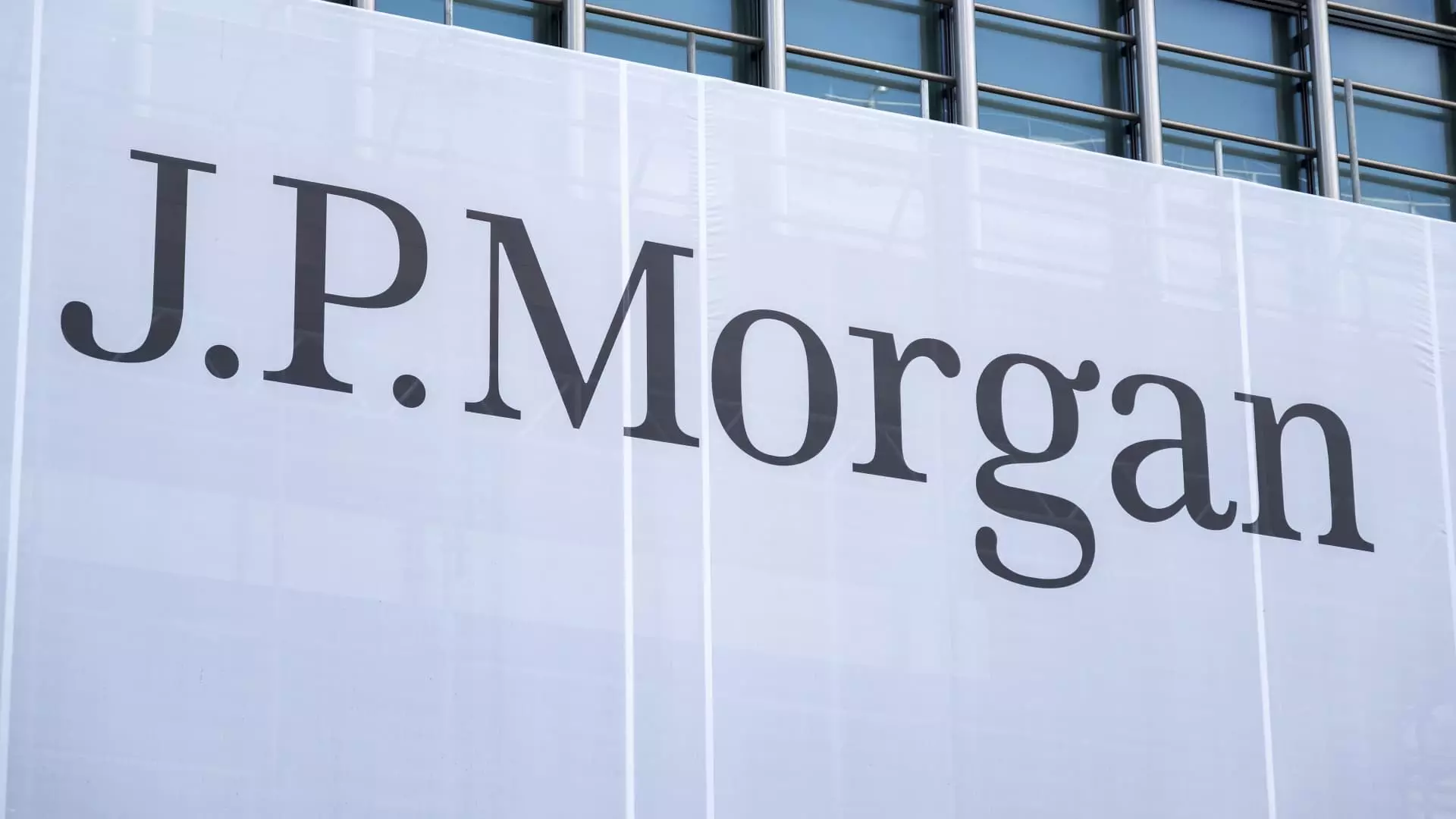Recent market developments have led to a significant shift in sentiment regarding JPMorgan Chase, one of the largest financial institutions in the United States. Baird analyst David George has made headlines by downgrading JPMorgan’s stock from a neutral position to underperform, indicating a sense of skepticism about the bank’s share price trajectory. His revised price target of $200 suggests a potential decline of approximately 19% based on the stock’s closing price the previous Wednesday. This perspective raises important questions about the underlying factors influencing the bank’s financial health and overall market performance.
Rationale Behind the Downgrade
George’s analysis underscores his belief that JPMorgan is currently over-earning, particularly in areas such as net interest income and credit. He emphasizes that the stock is trading at an elevated valuation, specifically citing a tangible book value multiplier of around 2.6x, which is notably high. The implications of this valuation are far-reaching: high expectations baked into the stock price may lead to increased volatility should the financial results not meet investor hopes. Furthermore, George’s note references other concerning metrics, including a price-to-earnings ratio that exceeds 14x for anticipated 2026 earnings—a stark indicator of expensive stock pricing in a potentially volatile market.
An intriguing component of George’s analysis is his commentary on the potential for a more favorable regulatory atmosphere, particularly in light of future political changes. While a possible second Trump administration may indeed foster a regulatory environment seen as advantageous for banks, George remains skeptical about JPMorgan’s buyback program. Given the already hefty stock valuation, he posits that any potential buyback initiatives might not yield significant effects on earnings per share (EPS), thereby rendering them an inefficient use of capital. This perspective diverges from the optimistically held views of several other analysts, reflecting a more cautious and perhaps contrarian outlook.
Despite George’s contrarian stance, it is essential to recognize that his viewpoint stands apart from the consensus among market analysts. According to LSEG data, 15 out of 24 analysts monitoring JPMorgan Chase have assigned buy or strong buy ratings, revealing a substantial divide in market sentiment. This disparity raises questions about the durability of George’s position and whether the majority’s optimism will ultimately overshadow his concerns. The potential for emotional trading behavior may exacerbate moves in either direction, creating a dynamic and unpredictable market atmosphere.
The contrasting analyses surrounding JPMorgan Chase encapsulate the complexities inherent in modern investing. As David George advocates for caution, his calls prompt investors to reevaluate their positions and consider their risk tolerance in an evolving economic landscape. Investors may need to carefully weigh the high valuations and the potential downsides presented against the backdrop of persistent market optimism. In a climate where sentiment can quickly shift, the decision to hold, buy, or sell may ultimately hinge on the balance between risk appetite and strategic foresight.

